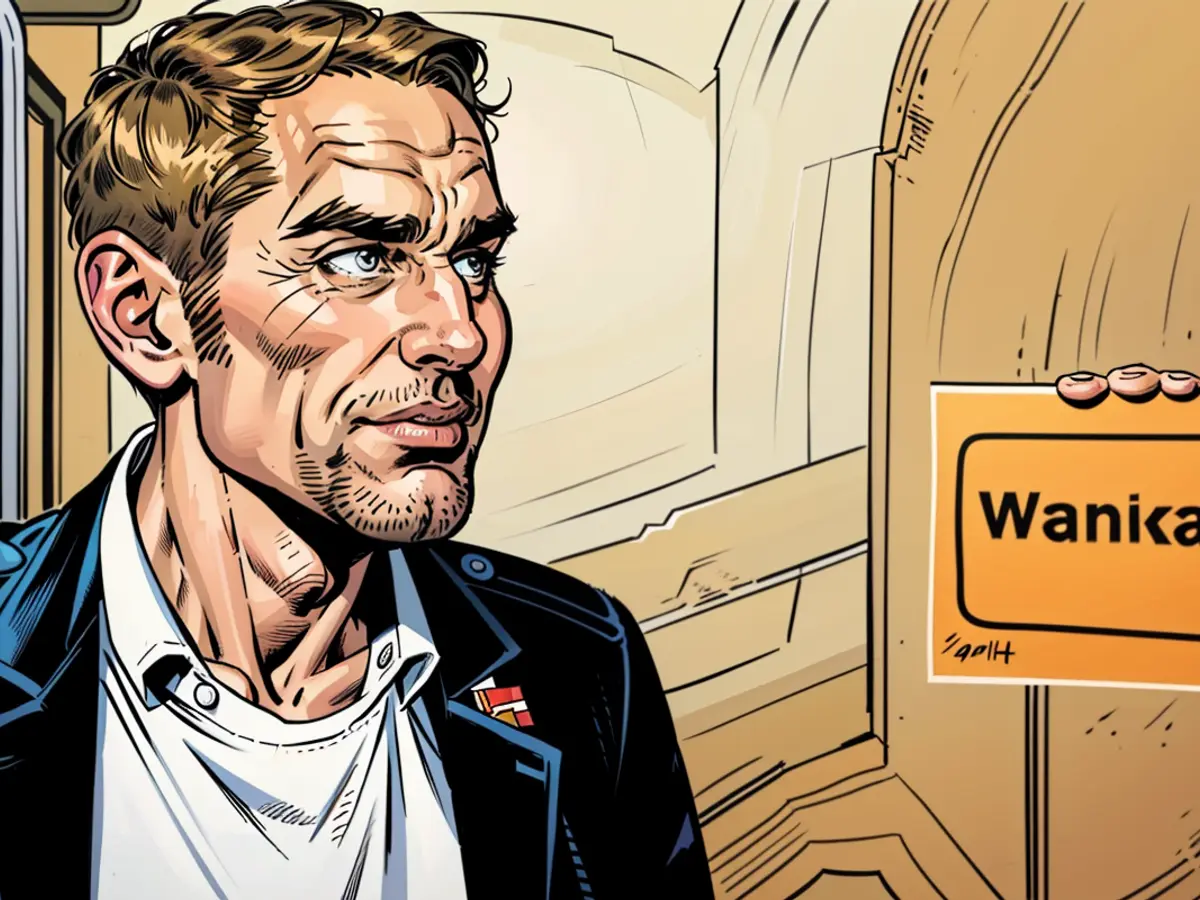- In the Thuringian elections, the AfD emerges as the strongest party, while the CDU comes in second place.
In the Thuringian state election, the Alternative for Germany (AfD), led by Björn Höcke, has taken the leading position. As per the 6 pm projections from ARD and ZDF, this is the first time the AfD has secured first place since its establishment in 2013, although it's unlikely to participate in the government, as per other parties' opinions. Following the AfD are the Christian Democratic Union (CDU) and the new alliance, the Wagenknecht-Bündnis (BSW).
The Left, under the leadership of Minister President Bodo Ramelow, has experienced a significant drop to fourth place. Meanwhile, the Social Democratic Party (SPD) has managed to enter the state parliament, while the Greens have missed out on this opportunity. The Free Democratic Party (FDP) has also failed to return to the parliament.
According to projections, the AfD has seen a significant increase, with a projected percentage of 30.5 to 33.5 (compared to 23.4% in 2019). The CDU has landed at 24.5% (up from 21.7% in 2019). The BSW has made a strong debut, securing 14.5 to 16.0%, leaving the Left behind, which has fallen dramatically to 11.5 to 12.5% (previously at 31.0% in 2019).
The parties that once formed the Berlin traffic light government have suffered heavy losses. The SPD has barely crossed the 5% hurdle, with 6.5 to 7.0% (down from 8.2% in 2019). The Greens, who were previously part of the government, are set to be excluded from the parliament with 4.0% (5.2% in 2019). The FDP has also failed to re-enter the parliament with 1.0 to 1.3% (5.0% in 2019).
The AfD is projected to win 30 to 33 seats (decrease from 22 seats in 2019), the CDU to get 24 seats (up from 21 seats in 2019), and the BSW to secure 14 to 15 seats (new entry). The Left would have 11 to 12 seats (a significant drop from 29 seats in 2019), and the SPD would gain 6 to 7 seats (down from 8 seats in 2019).
Approximately 1.66 million people were called to vote. The projected voter turnout is 73.5 to 74.0%, compared to 64.9% in 2019.
Complicated scenario for coalition formation
The previous red-red-green minority coalition, which relied on CDU cooperation, has no chance of renewal. A coalition with the AfD, which is classified as securely right-wing extremist by the state constitutional protection authority, is not an option for other parties. Forming a majority government is therefore expected to be complex.
Possible options for a majority coalition could include an alliance of CDU, BSW, and SPD, although it remains uncertain if the parties can together reach a majority of seats. CDU top candidate Mario Voigt would need to collaborate with the former Left and former Eisenach mayor, Katja Wolf, from the BSW, and SPD leader and Interior Minister Georg Maier.
The BSW could play a crucial role. BSW leader Wagenknecht, who did not run for office herself, had previously expressed her intention to participate in any coalition negotiations. However, there are concerns that the BSW does not want to be a permanent part of a state government to enter the federal election in 2025 without any damage.
Wagenknecht was a former SED member and later became a communist icon in the Left party, which makes many CDU politicians uncomfortable. Nevertheless, a coalition is possible, as the CDU is not allowed to form a coalition with the AfD or the Left due to an incompatibility resolution, but the BSW is not affected by this.
AfD state leader and top candidate Höcke remained unphased by the other parties' rejection ahead of the election. "We want to govern," said Höcke, who was recently fined twice in the first instance for using a Nazi slogan.
Tense atmosphere during the election campaign
The election campaign was marked by high tension. The issue of Russia's aggressive war against Ukraine and Germany's role as Ukraine's ally was a major point of contention. For instance, Wagenknecht made joining the government contingent upon no far-reaching missiles of NATO partner USA being stationed in the country – a condition opposed by the traffic light coalition in Berlin.
Another controversial topic was asylum policy, which was fueled by the Solingen knife attack with three fatalities, which the federal prosecutor's office attributes to a suspected Islamist Syrian refugee.
The AfD, under the leadership of Björn Höcke, has maintained its strong performance, with projections suggesting a potential increase from 23.4% in 2019 to 30.5% or higher in the recent Thuringian state election. Despite the AfD's likely first-place win, other parties are unlikely to consider them for coalition due to their classification as right-wing extremist.
Despite expressing her interest in coalition negotiations, BSW leader Wagenknecht's party could prove crucial in the complex coalition formation process, as they are not affected by the incompatibility resolution that prohibits the CDU from forming a coalition with the AfD or the Left.








